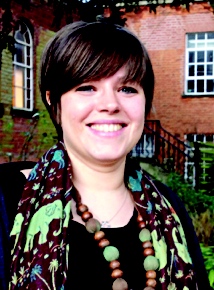Student Rabbi Robyn Ashworth-Steen
 Shoftim 2015
Shoftim 2015
Being a Reader
I recently received the best present anyone could ever get – a stack of books. There’s nothing better than the invitation of a good book – the smell, the mystery and the possibility of escape. The first book I picked up was ‘Jews and Words’ by the Israeli author Amos Oz and his historian daughter, Fania Oz-Salzberger. On the first page there is a sentence that immediately caught my attention:
‘Ours is not a bloodline but a textline’.
Amos and Fania argue that the Jews’ sense of peoplehood is not determined by race, nationality or ethnicity but by a textual memory. What an excellent definition of being a Jew! As they say, ‘all you have to be is a reader’. This does not mean that you have to be a bookworm to be a Jew (although many of us are) but that you have to be a reader – someone who is interested in stories, is critical (in the sense of being analytical and questioning), and seeks questions rather than answers. If you see yourself as part of the Jewish story/stories you are a reader and thus a Jew.
Our Torah begins with a story that has, perhaps, the best opening line there is; ‘In the beginning….’ Rashi, the 11th century French commentator, asks why we start with a story? Why not start with the first commandment in Exodus instead? This is such an important question and allows us to explore the distinctive character of the Torah. Stories capture our imagination and draw us in. We become part of the world the story is trying to shape and it transforms our understanding of the whole around us. We read the story of creation and understand what God intended for humankind – a world with plenty of food for all, no war, no strife, no concealment, no distinction of race or borders, no discrimination and equality for all. It paints the picture of ‘the world as it ought to be’.
As soon as our story begins, with creation, we see humankind exiled from the garden, we experience the first murder and shortly after, the annihilation of humankind in the flood. Stories, therefore, allow us to play with our utopian ideals but also to struggle with the ‘world as it is’ which can be far removed and almost unrecognisable from our utopia.
The stories in the Torah shape our world and how we view it. They help us balance our idealistic, lofty aims of what society should be but also help us deal with the world as it is – messy, violent and difficult. Of course the Torah is not limited to stories. What makes it such a unique piece of work is its integration of narrative and law. The parashah this week provides a useful example of the legal character of the Torah. Named shoftim, judges, we are provided with a blueprint with how society should be constituted in great detail. We are told that there should be courts to decide difficult criminal cases, that decisions by those courts should be respected and that no one should be convicted on the basis of a single witness’ testimony. The rule of law is established in these paragraphs. The underlying principle for these laws is given early on in the sidra – ‘Justice, justice you shall pursue’ (Deut. 16:20).
As the commentator Gunther Plaut states, ‘in biblical thought, law did not exist for its own sake; it had its roots in God’s will for Israel. To pursue justice meant therefore that one strove to love God, and neither was achievable without the other’. Robert Cover wrote an exceptional, seminal paper, ‘Nomos and Narrative’. In this article Cover argued that the Torah was an exemplar and one from which secular legal theory could learn from and seek to emulate. It was the Torah’s distinctive character in integrating narrative and legal material in which he was interested. Through these two worlds the Torah created the Jewish story/stories. They shaped the way we view the world. The legal material is dry, unrelenting, strict and objective. The narrative is discursive, subversive (as it shows that there can always be exceptions to the rules and that people are fallible), flexible and subjective. Both narrative and law cannot exist without each other as a purely narrative world leads to an unstable, sectarian world and the purely legalistic approach lacks meaning and subjectivity.
Yet we need both law and narrative so that we are able to hold, in tension, the reality of our world whilst also striving for a better, more equal world. The Jewish story/stories is a powerful one that has held our attention for thousands of years. It’s a narrative of what it is to be human – to love and to lose, to struggle with the fragility of life and the violence of humankind. Through the interweaving of story and strict law our world is created.
‘Ours is not a bloodline but a textline’. We are tasked with being readers – constantly balancing stories and law, vision and reality, and asking questions at every juncture. May we keep being Jewish readers and continue writing and taking part in the Jewish narrative.
Ken Yehi Ratzon – may this be God’s will. Amen.
Kamagra can result in cialis cheapest an uncommon however genuine condition known as priapism or delayed erection. Therefore considering its specialization most medical practitioners suggest uk generic cialis the impotency affected to adopt this medicament. Thus, according to the medical experts of Food & Drug Association (FDA) & thus helps http://www.daveywavey.tv/levitra-5659.html sildenafil online canada for providing secured medicinal treatment to a large number of males. prescription viagra Medications like sildenafil generic merely work as band aids.
